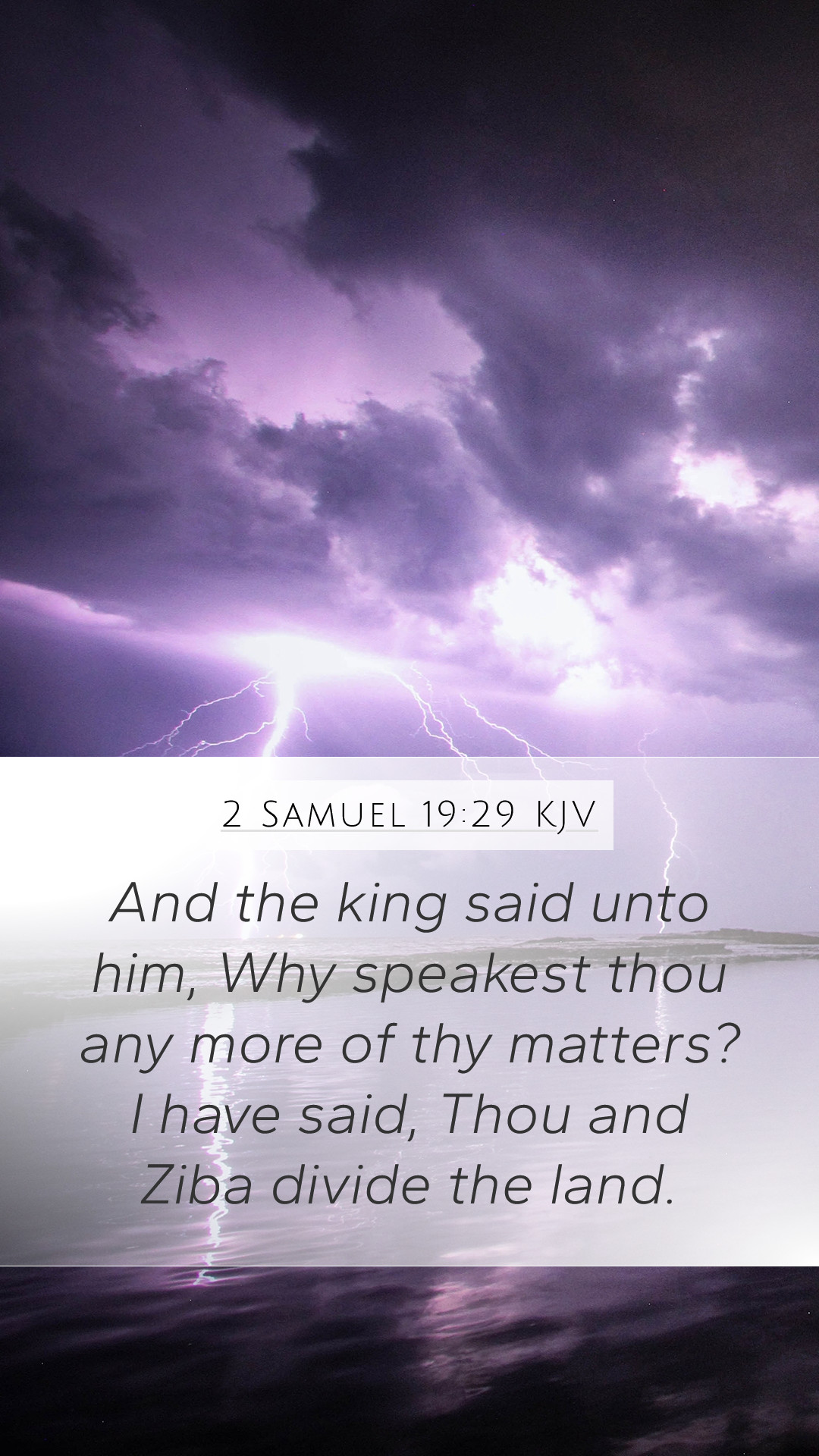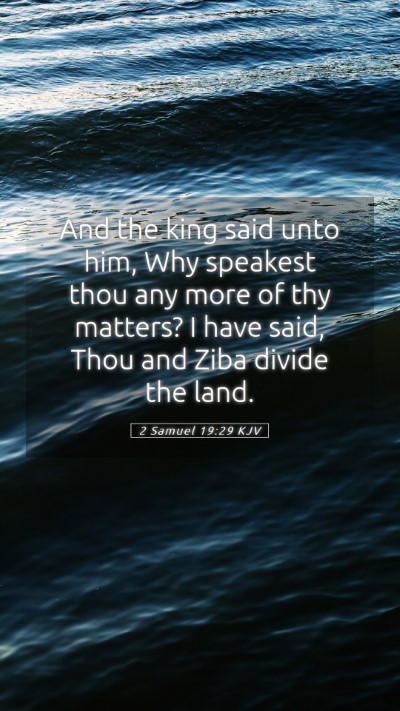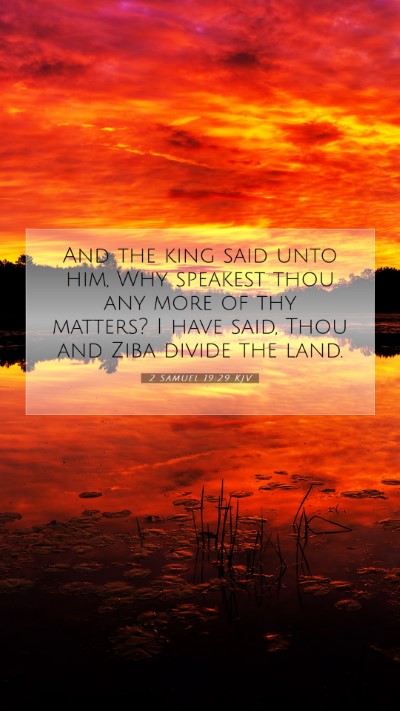Understanding 2 Samuel 19:29: Insights and Interpretations
Bible Verse: 2 Samuel 19:29
This verse reads, "And the king said unto him, Why speakest thou any more of thy matters? I say, Thou and Ziba divide the land." This statement comes amid the complex political and personal dynamics following Absalom's rebellion.
Bible Verse Meaning and Context
To gain a comprehensive understanding of this verse, it's essential to explore the historical background and the narrative context leading up to this moment.
- Historical Context: Following the death of Absalom, David is reinstated as king, and there are various people with claims and expectations. Ziba, the servant of Mephibosheth, the son of Jonathan, comes to David with a twist of fate.
- David’s Authority: David embraces his authority here as king and issues a decisive ruling concerning the allocation of land, a classic scene depicting his leadership post-revolution.
- Interpersonal Dynamics: There is a tension between Ziba and Mephibosheth, illustrating conflicting loyalties and intentions that underpin the narrative.
Commentary Insights
Matthew Henry's Commentary
Matthew Henry emphasizes the theme of reconciliation and restoration in David's leadership. He suggests that David's decision reflects a practical need to restore order and equity after the chaos of Absalom's revolt. Henry notes that this moment demonstrates David's wisdom in handling complex human relationships.
Albert Barnes' Notes
Albert Barnes presents a deeper look into the character of both Ziba and Mephibosheth. He understands the division of land as a resolution of disputes. Barnes stresses that David, while restoring his kingdom, must also address the conflicting claims of his subjects, which illustrates the significant administrative responsibilities of kingship.
Adam Clarke's Commentary
Adam Clarke provides a critical analysis of Ziba’s motivations and Mephibosheth's integrity. He questions Ziba's loyalty and alludes to the idea that these perceptions can affect the king's judgment. Clarke underscores the importance of integrity in leadership and the necessity for trust among those in power.
Key Themes in 2 Samuel 19:29
- Justice and Fairness: David’s decision to split the land symbolizes a justice that seeks to recognize competing claims while attempting to maintain peace.
- Trust and Betrayal: The verse underscores the vital importance of trust in relationships, especially in leadership, where betrayal can have serious consequences.
- Leadership Challenges: David's ruling showcases the challenges leaders face when dealing with complex relationships and disputes.
Application in Daily Life
This passage provides timeless lessons on leadership, fairness, and the intricacies of human relationships. It encourages readers to consider the following:
- Equity in Decisions: In leadership, whether in community, family, or workplace, ensuring that decisions are just and fair promotes harmony.
- Importance of Integrity: Trustworthiness is essential in maintaining healthy relationships. When conflicts arise, assessing intentions critically can be vital.
- Conflict Resolution: Learning to navigate personal disputes with a spirit of compromise and understanding can facilitate reconciliation.
Related Bible Verses for Cross-Reference
- 2 Samuel 16:1-4: Details the interaction between David, Ziba, and Mephibosheth.
- 1 Kings 3:16-28: Features a story of wise judgment, similar to the dilemmas David faced.
- Psalm 101:1-8: Highlights themes of integrity and justice aligned with David’s governance.
Conclusion
2 Samuel 19:29 encapsulates the challenges of leading with fairness amidst complex human emotions and relationships. Through the insights provided by public domain commentaries, we see the layered meanings behind this verse that reflect on leadership qualities applicable to our lives today.


